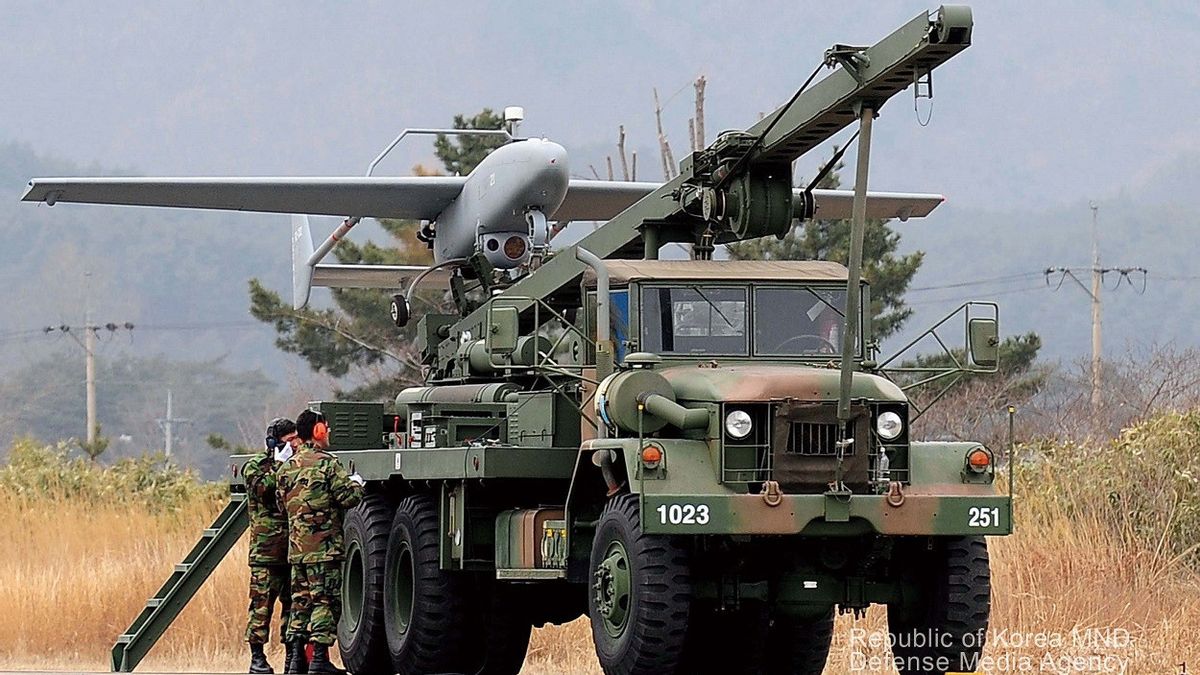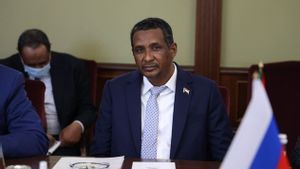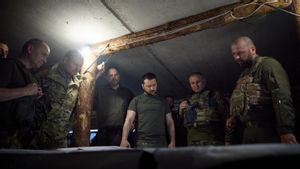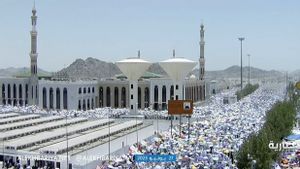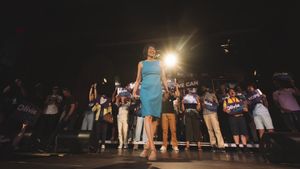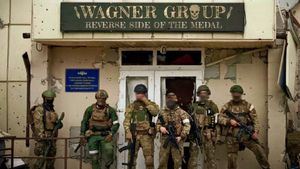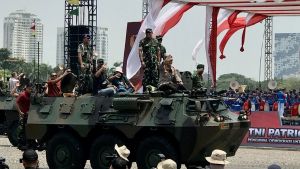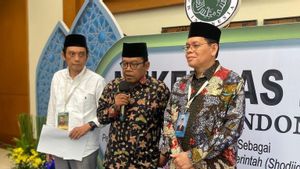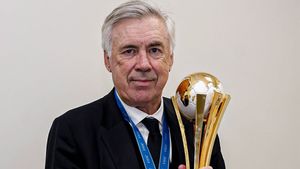JAKARTA - South Korea's military plans to launch a comprehensive drone operations unit in July, as part of its efforts to upgrade its unmanned aerial vehicle (UAV) capabilities, following North Korea's drone strike late last year.
Last January, President Yoon Suk-yeol directly ordered the creation of a multi-mission unit capable of not only effectively fending off North Korean UAV threats, but also capable of conducting reconnaissance and psychological warfare.
General Lee Bo-hyung of the Army Aviation Command is in charge of this project. How to share roles and cooperate with the Air Force to counter the UAV threat in various forms has emerged as one of the key tasks, as the military plans to continue strengthening its unmanned aircraft capabilities.
Meanwhile, one of the candidates for the location of this unit is Pocheon, a city in the northeastern region of Gyeonggi Province. The city is south of Cheorwon and Hwacheon, two areas that border North Korea, and contains military facilities that were once used by the now disbanded Republic of Korea VI Army Corps.
This allowed the rapid development of UAV units, given that most of the facilities, including the underground bunkers, were still usable after several repairs and upgrades.
To maximize the unit's potential, officials say, the South Korean military has learned from partner countries that operate such units. Several military officers recently visited Turkey's UAV operations unit to receive advice, according to the officials.
"We are developing operational concepts and strategies by analyzing operational cases in various countries," the Joint Chiefs of Staff said in a statement, reported by The Korea Times June 28.
It is well known that the Russia-Ukraine war has demonstrated just how lethal drones can be, with both sides taking advantage of them from the start of the conflict.
The Bayraktar TB2, a Turkish-made armed UAV, has become one of Ukraine's main weapons in its defense against Russian forces. Ukraine has used it for extremely risky operations to not only destroy Russian tanks and other military equipment, but also to inspect the situation inside Russian territory.
Many experts, however, say UAVs have changed the course and nature of modern warfare, a message President Yoon appears to have taken seriously.
It is known, the infiltration of North Korean drones last December demonstrated the lack of readiness of the South Korean military in dealing with such small aircraft that can carry lethal weapons.
Separately, Bruce Bennett, senior defense analyst at the Rand Corporation, a US policy think tank, told The Korea Times after the provocation, North Korea's drone threat should not be underestimated.
The military has since unveiled a series of drone defense plans, saying it will conduct regular drills, purchase drone jamming weapons, and build a real-time information-sharing system.
另请阅读:
However, acquiring the required technology and sufficient number of UAVs for these new units is still a challenge for the military, as they depend on foreign companies for advanced technology.
The domestically developed unmanned aircraft model, RQ-101, has been in use since 2002. The next generation of UAVs is still in the development stage.
President Yoon himself wants the military to upgrade the system for mass production of small UAVs, as well as developing a new stealth model by the end of this year.
The English, Chinese, Japanese, Arabic, and French versions are automatically generated by the AI. So there may still be inaccuracies in translating, please always see Indonesian as our main language. (system supported by DigitalSiber.id)
